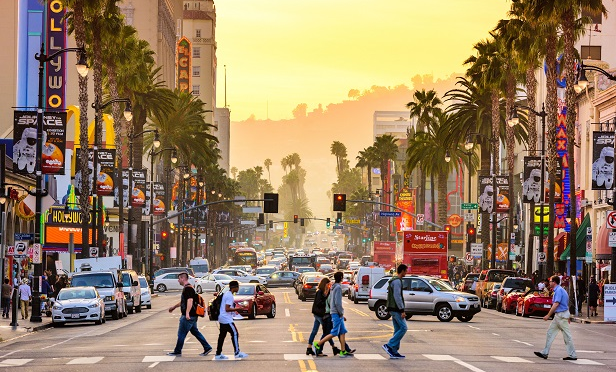 Sunday night, Los Angeles Mayor Eric Garcetti announced the closure of bars, entertainment venues and fitness centers and restricted restaurants to take-out and delivery only as a result of the spread of COVID-19. The list of restricted retailers will sound familiar to those in the commercial real estate industry. These are the businesses that have driven retail leasing activity and that have expanded rapidly in last two years as retail has recovered. That will likely come to a halt as a result of these closures, and depending on the length of time, could result in the permanent closure of businesses, particularly mom-and-pop or locally owned shops.
Sunday night, Los Angeles Mayor Eric Garcetti announced the closure of bars, entertainment venues and fitness centers and restricted restaurants to take-out and delivery only as a result of the spread of COVID-19. The list of restricted retailers will sound familiar to those in the commercial real estate industry. These are the businesses that have driven retail leasing activity and that have expanded rapidly in last two years as retail has recovered. That will likely come to a halt as a result of these closures, and depending on the length of time, could result in the permanent closure of businesses, particularly mom-and-pop or locally owned shops.
Each of these segments of retail will be impacted differently. Restaurants have the best chance of making it through, because they are able to stay in business—and generate revenue—through delivery and to-go orders. "The majority of businesses have credit lines that they can draw down from. From the business owners' standpoint, they are leveraging the opportunity to do take-out and delivery," Chris Maling, principal with Avison Young, tells GlobeSt.com.
For entertainment venues, and specifically movie theaters, the temporary closures could have a major impact, particularly for chains like AMC. "This could be a tipping point for national chains. If they are shut down for an extended period of time, they may not reopen," says Maling. "They will look at survive-ability going forward because this is devastating to their bottom line. Because it is a highly specialized use, it is expensive to replace the tenant and convert the space into alternate uses."
Fitness centers are more bifurcated. National chains are well capitalized to weather the storm, while other brands—even some household names—are more exposed to risk. "In fitness, the strong will survive. L.A. Fitness, Spectrum, Equinox all tend to have a healthy balance sheet. Other chains with a heavy debt load, like 24-Hour Fitness could be a candidate for a bankruptcy filing," says Maling. "However, I am hearing that there is an onslaught of members requesting to put their memberships on hold. If that continues to happen, chains are going to be out of business quickly. There is tremendous stress in that sector if this becomes a prolonged quarantine."
While the closures could significantly impact the retail market and force companies out of business, Maling says that it is necessary. "I think this is the right thing to do, and it is very important to stop the spread of this virus," says Maling. "This should be a practice across the country. It is a short window of time for the next two weeks, and then we will see where we stand. The unfortunate thing is that people's livelihood and businesses will be severely impacted and affected. It is unfortunate, but it has to be done for the greater good."
Still, landlords will have to make some difficult decisions in the short term, and the last recession may serve as a guide. "They should look at the chapter from 2008 as to what they did and how they were able to mitigate tenant closures," says Maling. "Those will include some of the strategies that landlords need to embrace in order to allow tenants to survive."
Mayor Garcetti also has a plan to subvert potential mass store closures: to place a potential moratorium on commercial evictions. As for now, the Mayor has only suggested the moratorium, but it isn't sitting very well in the retail real estate industry. "The Mayor doesn't realize that landlords and owners have a mortgage payment, and unless he tells banks—which he cannot do—to put a moratorium on loan payments, landlords will not be able to make those payments," says Maling. "Lenders are not as accommodating to these circumstances. It can provide a lot of stress in the system. It will be determined how lenders are going to react to this."
© Touchpoint Markets, All Rights Reserved. Request academic re-use from www.copyright.com. All other uses, submit a request to [email protected]. For more inforrmation visit Asset & Logo Licensing.






